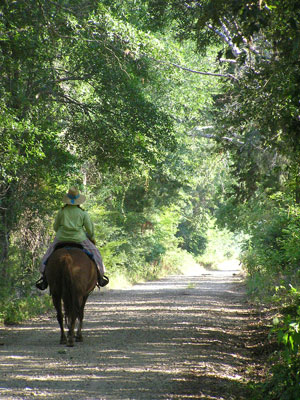Animal Souls, Slaughter and the Bible

We may not have actual ‘golden calves’ in the western hemisphere, but animal worship is still prevalent today.
The inappropriate exaltation of animals first began, in a sense, in the Garden of Eden when Eve chose to believe the words of the serpent and disobey the commandment of God. Since the first sin, generations have willfully forgotten their Creator and worshiped the creature(s) instead (Romans 1:25).
Political efforts are winning the battle to ban the slaughter of horses in the USA. ‘Animal communicator’ is becoming a globally defined profession. Media sources suggest that animals have immortal souls and live in paradise after death. (See the sidebars about horse slaughter and animal psychics.)
Probably everyone has had some animal make life a little brighter. But not all of us want to address whether ‘good’ animals go to Heaven or not.
For Christian animal lovers, like myself, it can be confusing and difficult to ask the question:
Just what does the Bible say concerning man and animal coexistence here on earth and eternal life beyond?
Man was created in the image of God
When the animals were created on the sixth day of the creation week, God was pleased with what He had done. He pronounced His work, ‘good’ (Genesis 1:25). In Revelation 4:11, we read that God created all things for His pleasure.
The Lord, however, desired that one of His creatures would be able to commune with Him and appreciate the splendor of His perfect creation. God created man in His image (Genesis 1:27–28). Man and woman were created separate from the animals—Adam from dust, and Eve from his rib. In Genesis 9:6, the Creator decrees capital punishment for those who murder man:
‘Whoever sheds the blood of man,
by man shall his blood be shed,
for God made man in his own image.’
Animals were not given the distinction of being created in God’s image.
God gave man dominion over animals
In Genesis 1: 27–28, God gives humans pre-eminence over ‘every living thing that moves on the earth.’ Psalm 8:4–6 declares:
‘What is man that you are mindful of him,
and the son of man that you care for him?
Yet you have made him a little lower than the heavenly beings
and crowned him with glory and honor.
You have given him dominion over the works of your hands;
you have put all things under his feet’.

Many animals today need management and even human intervention to survive.
What does dominion mean?
The Hebrew words used to describe man’s preeminence over animals in Genesis 1:28 and Psalm 8:6 are radah, kabash and mashal.
- radah (רדה) means ‘to bring under one’s control for one’s advantage’. Throughout the Old Testament, radah is used to describe the word ‘dominion’ eight times.1 It can mean ‘tread down’ or ‘subjugate, but it is is also used in describing Christ’s dominion over the earth (Numbers 24:19) and Solomon’s rule over his kingdom (1 Kings 4:24). Therefore its meaning is compatible with benevolent rule, and since God issued the Dominion Mandate before the Fall, it must have been benevolent.
- kabash (כבש) or ‘subdue’. Once again, there is nothing intrinsically harsh about the word itself. Micah 7:19 states that subduing (kabash) our sins is a sign of God’s compassion. So whether the word means something benign or malign depends on context.
- mashal (משל) is defined as to rule, reign, and have dominion. This word is also used when Bildad declares the sovereignty of God (Job 25:2) and the Philistines have Israel under subjection (Judges 14:4). Mashal is used for ‘dominion’ seven times in the Old Testament.2
We can clearly see we were created as ‘kings’ of a ‘kingdom’ with ‘subjects’ to oversee. In following God’s design and purpose for men and women, we are to reign and have power over our animals. But this power does not condone causing an animal to suffer. Proverbs 12:10a says that a righteous man will care for the needs of his animal.
Man: qualitatively different from animals
Scripture makes it crystal clear that there are profound differences between humans and animals. For instance, 1 Corinthians 15:39 declares:
‘All flesh is not the same flesh: but there is one kind of flesh of men, another flesh of beasts, another of fishes, and another of birds.’
Isaiah 31:3 makes a further distinction between men and animals in spiritual classification:
‘Now the Egyptians are men, and not God and their horses flesh, and not spirit … ’ (Isaiah 31:3)
Note the contrast between the two words bolded for emphasis. The word for ‘spirit’ here is the Hebrew rûach (רוח) meaning wind; spirit; sensible. It can be used of sentient animals (as in Genesis 6:17). But its use here is clearly intended to show that, just as there is a difference between man and God, there is also a profound difference between horses and people.
God instituted animal slaughter.
It is crucial to remember that God Himself was the first to slaughter an animal in order to clothe Adam and Eve after they had sinned. In Genesis 3:21, ‘ôr (עור) is the Hebrew word describing the ‘skin’ from which the first clothes were made. ‘ôr is used over a hundred times in Scripture to reference leather or hide.
After the Flood, in Genesis 9:3, God sanctions the human consumption of animal flesh:
‘Every moving thing that lives shall be food for you. And as I gave you the green plants, I give you everything.’
In Old Testament Law found in Leviticus and Deuteronomy, God institutes the extensive protocol of animal sacrifice. In this same law, the Lord decrees the criminal penalties for homicide and human sacrifice.
Christ was the ultimate sacrifice and by His death, conquered sin that through Him the human race might obtain eternal salvation from death and separation from God. Because of Christ, the Perfect Lamb (1 Corinthians 5:7), we no longer have to sacrifice animals—the sin penalty is paid in full (Hebrews 7:27, 9:12).
‘For as in Adam all die, even so in Christ shall all be made alive.’ (1 Corinthians 15:22)
Conclusion
We have a sober responsibility to be good and kind stewards of the animals under our care. However, it is so important to keep these creatures in their proper place in our affections. God never intended for man to worship animals by giving them human characteristics or honoring them above other human beings.
The Bible tells us that, in eternity, Christians will live in continual bliss where there is no sin or death (Revelation 21:4). Scripture also declares that the Creator will create a new Heaven and new Earth (Revelation 21:1). Will God recreate new animals in Heaven? The Bible doesn’t tell us, and animals are not mentioned. (The well-known passages in Isaiah 11 and 65 about herbivorous lions, and wolves and lambs coexisting peacefully, must refer to a period of partial restoration prior to the New Heavens and Earth, because the description still refers to death of people, even though at a very ripe old age.) But as Christians, we can trust that being united with Christ Jesus will completely satisfy those who love God first in their hearts.
Horse slaughter bans in the USA
In the United States, political legislation and lobbies are working militantly to stop equine slaughter. In 2007, their efforts succeeded in closing down the three horse slaughter plants located in the US (one located in Illinois and two in Texas). The Horse Protection Act (H.R. 503; S 311) and Prevention of Equine Cruelty Act of 2008 (H.R. 6598) are currently waiting for U.S. Congress approval to redefine horse slaughter and the exportation for slaughter as a federal crime. Horse conservationists write that it is an ‘American disgrace’1 to eat an icon of American freedom and the ‘betrayal’ of an ally.
‘I have always known in my heart that slaughter is the ultimate betrayal to an animal who has given their life to serve you and bring you joy … ’2
It is a bit ironic that many who oppose horse slaughter suggest that the wild cattle population in the United States should be lessened to make more room for unwanted or wild horses.3 Allowing emotion to decide which animal species ‘should and shouldn’t be’ slaughtered can impede sound reasoning.
Since the federal closure of the US equine slaughter plants, Mexican exports have increased by 312%, therefore, issues of ungoverned animal cruelty loom larger than before.4
Many organizations that oppose the ban, like the American Association of Equine Practitioners (AAEP) write,
‘We oppose H.R. 6598 not because the AAEP believes that sending a horse to a processing plant is the best option for reducing the unwanted horse population,’ the statement said, ‘but because it does not help address the long-term care and funding that will be necessary to help the tens of thousands of horses that will be affected by the ban.’5
The American Veterinarian Medical Association adds:
‘The reality is, proponents of this legislation have done nothing to address the real issue here, and, in fact, by seeking to ban horse slaughter, they have made things significantly worse.’6
References
- ‘Horse Slaughter—An American Disgrace, Not a Necessary Evil’ Equine Protection Network, www.equineprotectionnetwork.com/slaughter/sindex.htm, 20 July 2008.
- Christine Berry, ‘The Slaughter of America’s Horses—An American Tragedy’ www.equineprotectionnetwork.com/saveamericashorses/index.html, 20 July 2008.
- ‘The Wild Horse is Us,’ Newsweek, www.newsweek.com/id/144279, 3 August 2008.
- ‘U.S. horse slaughter exports to Mexico increase 312%: Despite American plant closures, slaughter continues across the border,’ Javma News, American Veterinarian Medical Association, www.avma.org/javma-news/2008-01-15/us-horse-slaughter-exports-mexico-increase-312, 3 August 2008.
- ‘Veterinary Group Opposes New Slaughter Legislation,’ The Horse, thehorse.com/122949/veterinary-group-opposes-new-slaughter-legislation, 4 August 2008.
- Dr Mark Lutschaunig, director of the AVMA Governmental Relations Division, Reference 4.

Interspecies Telepathic Communicator
Being able to converse or talk to animals is considered a gifted profession.1 These ‘communicators’ are positive that animals are spiritual beings like humans. Each communicator has different ‘psychic’ communicative abilities which include: talking to dead animals, discerning whether the animal is ready to die and also discovering the animal’s ‘family history.’ Advertisements say these ‘animal counselors’ can simply ‘talk’ to the animal over the telephone.2
In the Bible, there are only two references to animals ‘speaking’: first, the serpent that deceived Eve and second, Balaam’s donkey. Scripture tells us that God cursed the serpent (Genesis 3:14–15). This curse equates to the curse on Satan, which suggests that Satan spoke through the serpent. Balaam’s donkey spoke because, ‘the Lord opened the mouth of the donkey … ’ (Numbers 22:28) Does this prove animals are spirit beings? No. God also spoke to Moses out of the midst of a burning bush (Exodus 3:4).3 These acts did not immortalize bushes or donkeys or serpents; instead, such references point to the God of the Bible’s omnipotent abilities.
Concerning psychic animal communication, the Bible strictly teaches that all occult practices are an abomination to God (Deuteronomy 18:10–13).
References
- Interspecies Telepathic Communicator, www.animaltalk.net/meet.htm, 20 July 2008.
- Palsha, Jacquline, ‘Reading Paint: Animal Communicators Allow Horse Owners To Tap Into A Whole New World’ The Paint Horse Journal, June 2004.
- Though nothing was stated about the bush vocalizing, of course.
References
- Gen. 1:26; Gen 1:28; Num. 24:19; 1 K. 4:24; Judges 5:13; Neh. 9:28; Ps. 49:4; Ps. 72:8 Return to text.
- Gen. 37:8; Judges 14:4; Neh. 9:37; Job 25:2; Ps. 8:6; Ps. 19:13; Dan. 11:5 Return to text.

Readers’ comments
Comments are automatically closed 14 days after publication.